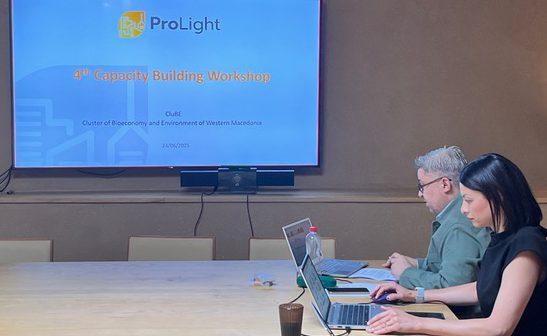At the Heart of the European Energy Transition: Successful 4th Capacity Building Workshop in the Prolight Project

30 July, 2025
Coordinator Momir Tabakovic opened the latest workshop of the EU-funded international project.
On June 24, 2025, the fourth Capacity Building Workshop (CBWS) took place as part of the EU-funded research project ProLight – a hybrid event organized live in Brussels and online. The workshop served as a platform for exchanging best practices for implementing energy-efficient neighborhood solutions and provided insights into related European projects focusing on energy poverty, digitalization, and sustainable urban development. The University of Applied Sciences Technikum Wien played an important role in this: Project coordinator Momir Tabakovic opened the event with an introduction to the project and its six demonstration districts in Europe.
With research into livable, climate-conscious cities
The ProLight project focuses on the renovation of existing buildings, the integration of renewable energies, and the creation of inclusive, sustainable neighborhoods in line with the European Green Deal. The University of Applied Sciences Technikum Wien is contributing its expertise in the field of renewable energy technologies and energy communities to the project. The scientific work aims not only to test innovative solutions, but also to make them replicable in other European regions.
Exchange with European partner projects
The workshop was divided into two parts: In Session A, initial findings from the ProLight demo districts were presented, with a particular focus on challenges and success factors in replicating digital services. As the lead institution, UAS Technikum Wien presented the methodological foundations and strategic objectives of the project. Session B was followed by an exchange with related EU projects, during which innovative approaches to combating energy poverty and strengthening local energy communities were presented.
A strong contribution from Austria for Europe
Through its project coordination, UAS Technikum Wien is helping to ensure that scientific findings are directly translated into practical solutions – for example, in the form of an upcoming replication guide that will serve as a template for sustainable neighborhood development in other cities and regions.
Further information:




